If we truly care for ourselves, we’ll care for others and for our common home. But we’re only capable of truly caring for ourselves if we feel cared for. “Cast all your anxiety on Him because He cares for you.” (1 Peter 5:7)
Together with Anne Doutriaux, LSM’s France coordinator, I had the opportunity to participate in the Young Adults Retreat organized by the World Community for Christian Meditation (WCCM) at the Bonnevaux Abbey Centre for Peace in France. A diverse group of people from across 14 countries in Europe and Latin America came together for 5 days of deep sharing and communion with creation and one another. As John Main, the Benedictine monk founder of WCCM, used to say: “Meditation creates community”.
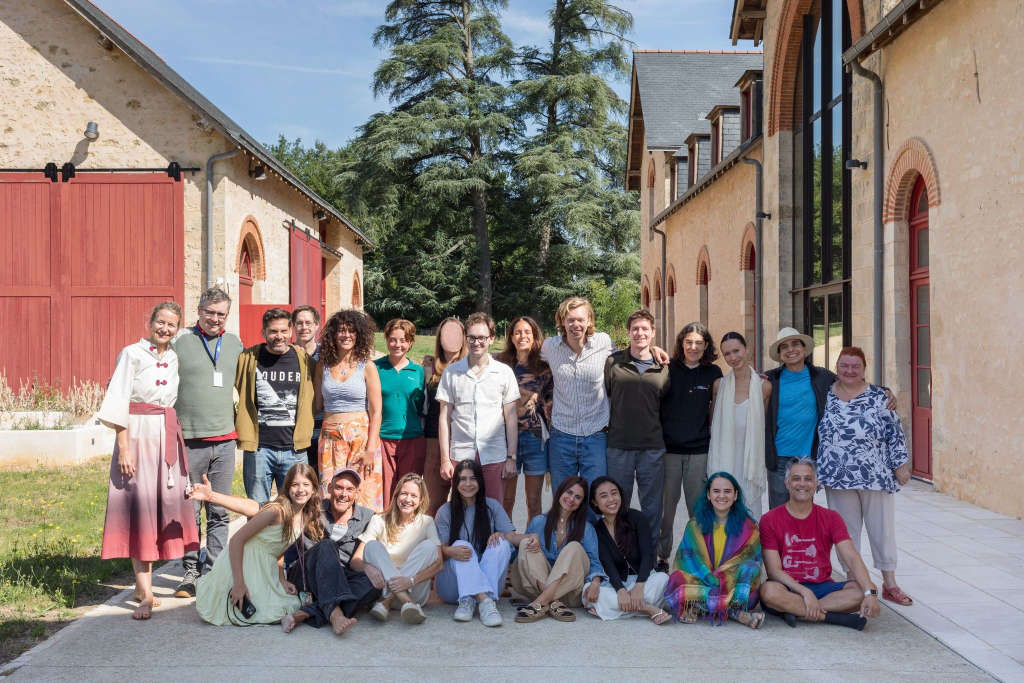
Participants and some of the facilitators of the WCCM Young Adults Retreat.
The retreat was facilitated by Laurence Freeman, a Benedictine monk who carries on the legacy of Christian Meditation by John Main, Taynã Malaspina, a WCCM oblate and International Director of Meditation for Young People from Brazil, Patricio Lynch, a missionary contemplative priest from Argentina, and Terry Doyle, a Holistic Wellbeing Coach and Community Organizer in the North East of England and WCCM Special Interest Coordinator.
Each day followed a gentle rhythm with three 40-minute meditation sessions, shared silence, and nourishing meals. Participants engaged in activities like yoga and breathing exercises with Kevin, nature immersion with Guillaume, Lectio Divina with creation led by Anne, reflections on Laudato Si’ and the Laudato Si’ Movement, watching The Letter, singing Taizé chants, sharing artistic talents, and receiving one-to-one spiritual guidance.
In the moments of reflection with Fr. Laurence and then with Terry, we were invited to reflect on the ripple effects of meditation and a contemplative lifestyle. With Fr. Laurence, we explored how loneliness is not the same as solitude. Loneliness speaks to an existential problem that results from an individualist approach to life, increasingly common in the days we live in. But solitude speaks of the freedom to choose when to be lonely and cultivate your self-embrace, deepen your understanding of your own inner self, and be comfortable and loving with who we are when we are by ourselves.
Listening to Terry and his experience of sharing the gift of meditation with people from the margins of society, we were invited to reflect on how underneath, we’re all the same. We all struggle with the same types of insecurities and fears, though we may struggle from different social and cultural backgrounds. Finding our capacity to recognize one another from that perspective is a deep way to honor how we are all indeed a cosmic family. The true meditator recognizes themselves in the other and also recognizes the other in themselves.
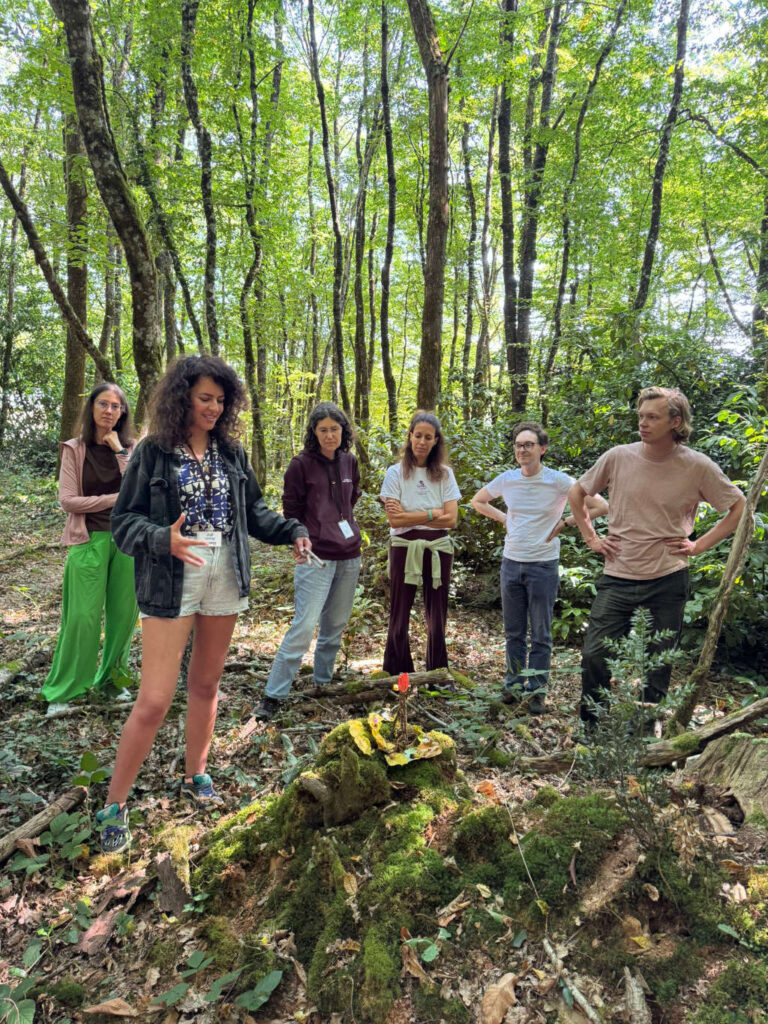
Participants share what they built with nature immersed in nature
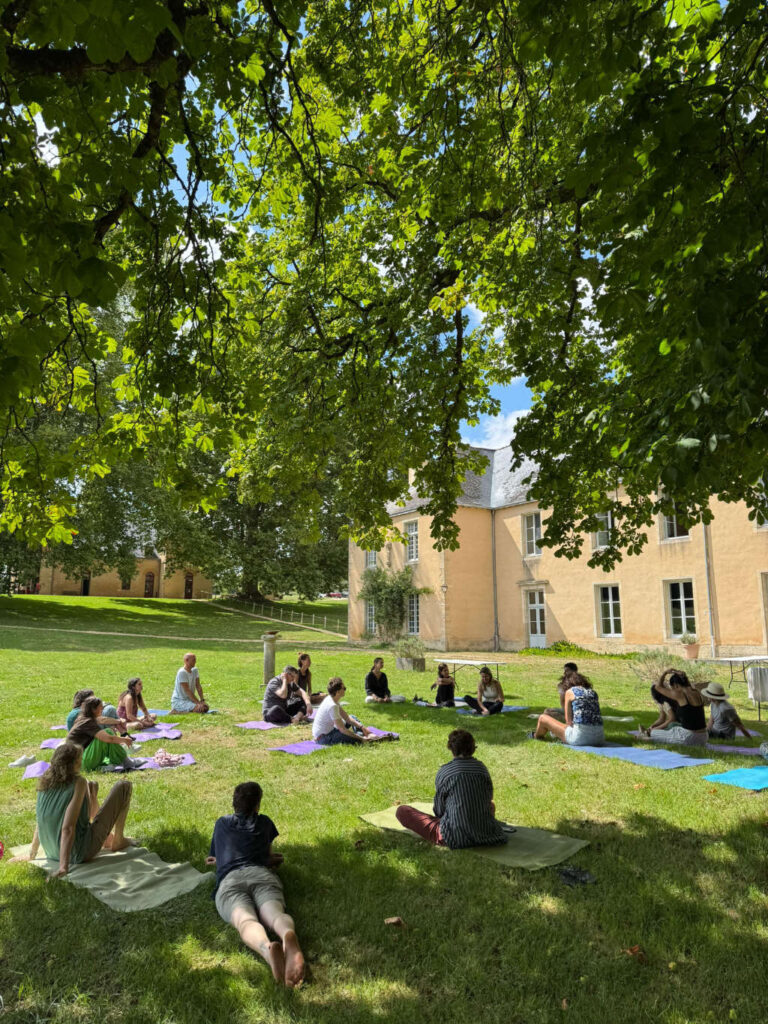
Breathing exercises outdoors
During her reflection, Taynã encouraged participants to rethink what true self-care means. She noted that today’s consumerist culture often equates self-care with buying products—coaching books, beauty lotions, bath salts, or exclusive content—rather than cultivating inner peace and discernment. She highlighted how we live in a burnout, performance-driven society, where rest and self-care become not only essential for well-being but also a revolutionary act against exploitation.
Taynã emphasized the value of vulnerability, a theme further explored by Fr. Patricio through his work with abused children in Honduras. Guided contemplations, including observing each other’s eyes and bodies, reminded participants that being present to our own and others’ bodies is a profound form of self-care and care for creation. For some, especially across different cultures, this may feel unfamiliar, yet it deepens connection with oneself, others, and the world.
The retreat also prompted reflection on the roots of climate and socio-environmental injustices. Exploitative economic and political systems stem from a disconnection from the Earth and the understanding that all life is interconnected. While no single person is to blame, recognizing this interconnectedness reminds us that everyone bears responsibility.
Each individual, with their unique gifts and capacities, can cultivate meditation and a contemplative lifestyle, fostering intentional actions to care for others and our common home. Structural injustices can only be addressed through collective awareness and action. When we see ourselves as part of a cosmic family, small personal practices ripple outward, contributing to meaningful global change.
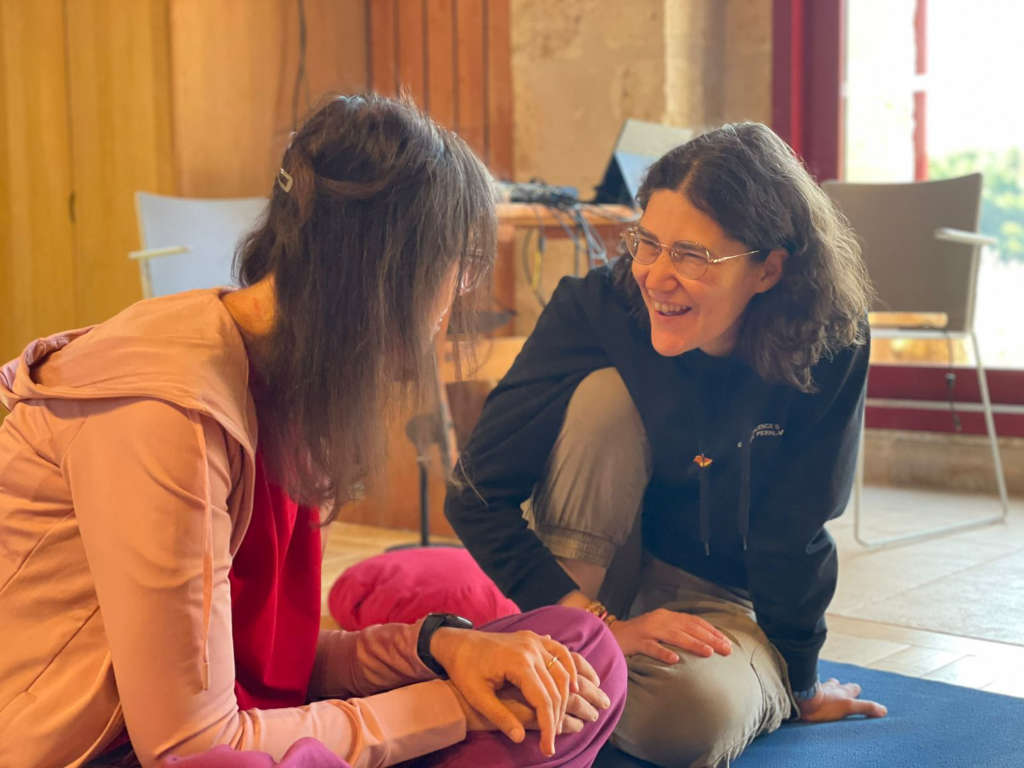
A sharing moment with Anne Doutriaux
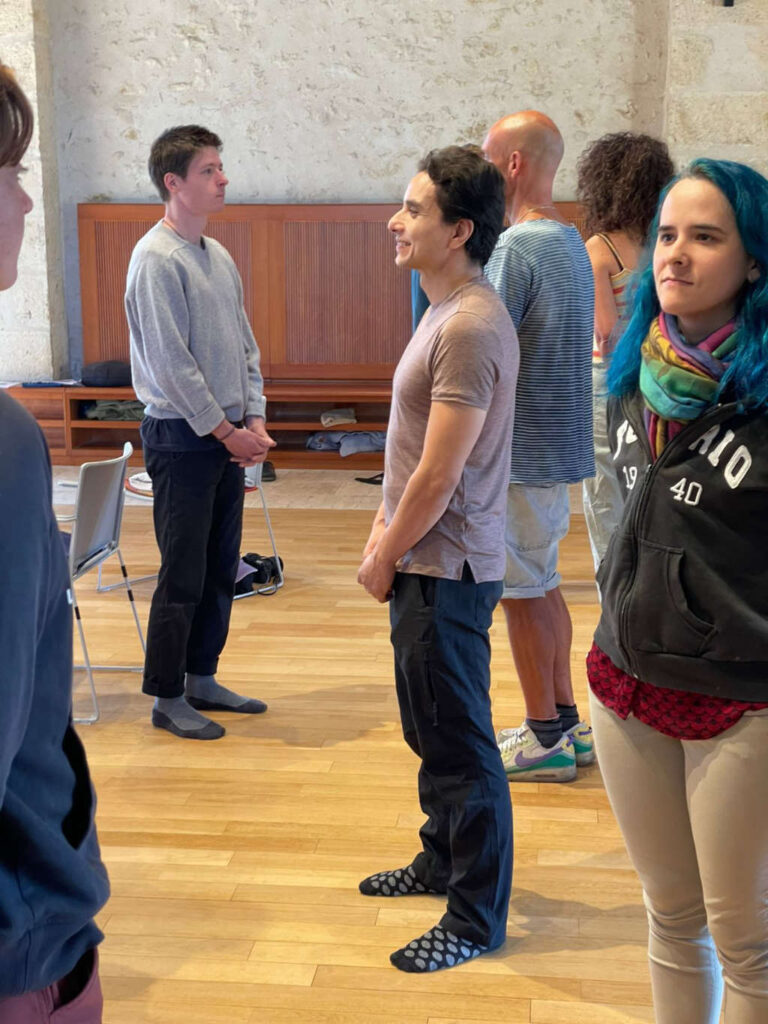
Contemplating each other’s eyes
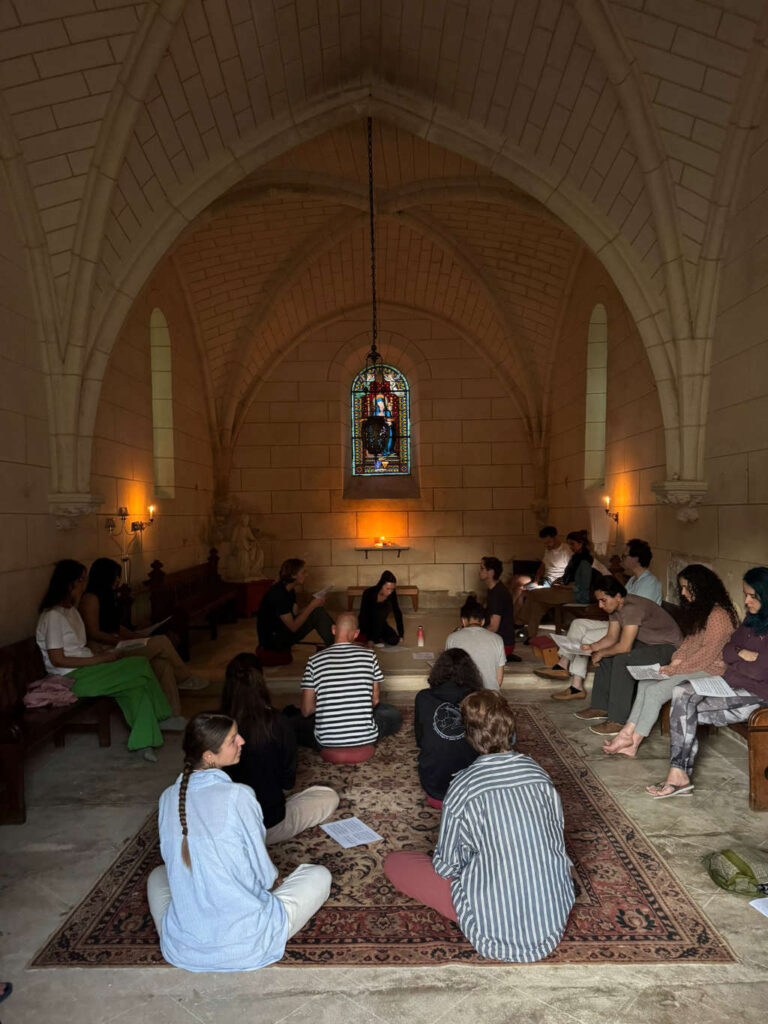
Taizé chanting in the chapel
Another great takeaway from the retreat was realizing how silence is communication. Silence unites us, in silence we understand each other, in silence we are all equal. Silence is what enables us to know how to speak, when to speak, and even when we need to raise our voices. Because, similar to the difference between loneliness and solitude, chosen silence is a gift, but imposed silence is an oppression. We must always raise our voices for those who are silenced in our societies and try, as much as we can, to bring their own voices to the table.
As we commit more and more to the mission of caring for creation and fighting for climate and socioenvironmental justice, remember to be gentle with yourself, with others, and with the Earth. And also don’t forget to “Rejoice in the Lord always. I shall say it again: rejoice! Your kindness should be known to all. The Lord is near. Have no anxiety at all, but in everything, by prayer and petition, with thanksgiving, make your requests known to God. Then the peace of God that surpasses all understanding will guard your hearts and minds in Christ Jesus.” (Philippians 4:4-7)
Find out more about LSM’s Contemplation Program hereSave the date! Ecojustice from the heart: on November 1, LSM shares with WCCM about the contemplative way of being as an antidote to the climate and socioenvironmental crisis





